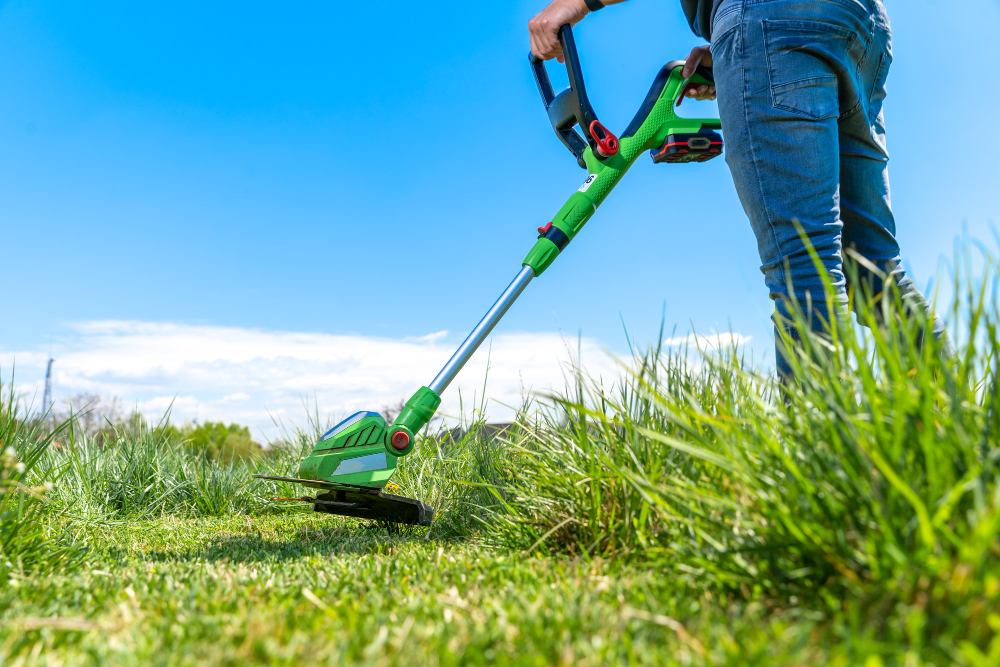How to Keep Your Lawn Green Without Harsh Chemicals

Maintaining a verdant lawn that looks like it just popped out of a home and lifestyle magazine is a challenging task. It requires a considerable amount of time, effort, and resources to keep it looking great. Unfortunately, many homeowners use harsh chemicals and pesticides, thinking these products are the only solution to their lawn problems. However, there is a better way to keep your lawn green and healthy without exposing your family and pets to harmful chemicals. In this blog post, we'll discuss the best organic lawn care tips to keep your lawn healthy and green without using harsh chemicals.
1. Mow Your Lawn Properly
Mowing your lawn plays an essential role in maintaining its health. It’s important to set your mower’s height between 2.5 and 3.5 inches to prevent scalping, which can damage the grass. A higher mowing height also allows grass to grow taller, resulting in stronger roots and better moisture retention. Additionally, you must keep your mower blades sharp to prevent tearing and damaging the grass. Mowing regularly is also important in preventing weeds from taking over your lawn.
2. Water Your Lawn Early in the Day
Water is essential for keeping your lawn healthy and green. However, it is important to be mindful of how you water. The ideal time to water your lawn is early in the morning since it is cooler, and the water is less likely to evaporate quickly. Watering early in the morning also allows your lawn to dry before night-time, reducing the risk of disease. Additionally, it's important to water your grass deeply but infrequently to encourage deeper roots and better nutrient absorption. Aim to water your lawn about an inch per week, depending on local weather conditions, to keep it healthy.
3. Use Organic Fertilizers
Organic fertilizers include compost, bone meal, and fish emulsion. These natural products contain the necessary nutrients to keep your lawn healthy without harming the environment, pets, or people. Organic fertilizers are also slower-releasing than their synthetic counterparts, meaning that they will nourish your lawn over a longer period. Additionally, organic fertilizers contain microorganisms that promote healthy soil, resulting in stronger roots and better moisture retention.
4. Aerate Your Lawn
Aeration is the process of creating small holes in the soil to allow water, air, and nutrients to penetrate deeper. Over time soil can become compacted from regular use, which can prevent water and nutrients from reaching the grass roots. Aeration also helps grass roots grow deeper, resulting in stronger grass that is more resistant to drought, disease, and pests. Ideally, you should aerate your lawn once a year, either in the spring or fall.
5. Use Natural Pest Control Methods
Using chemical pesticides and herbicides can be harmful to the environment, pets, and people. Fortunately, there are natural pest control methods that can be just as effective without the harmful side effects. These methods include using ladybugs to control aphids, planting marigolds to repel nematodes and other pests, and using a soap solution to control mites and other insects.
Conclusion
Maintaining a beautiful lawn doesn't have to come at the expense of your family's health or the environment. By following these organic lawn care tips, you can keep your lawn healthy and green while reducing your exposure to harmful chemicals. So opt for organic fertilizers, natural pest control methods, and proper lawn maintenance, and enjoy a lush, thriving lawn that is both beautiful and environmentally friendly. If you're looking for sod companies in Orlando, FL, contact From The Ground Up Landscaping today for free estimates.